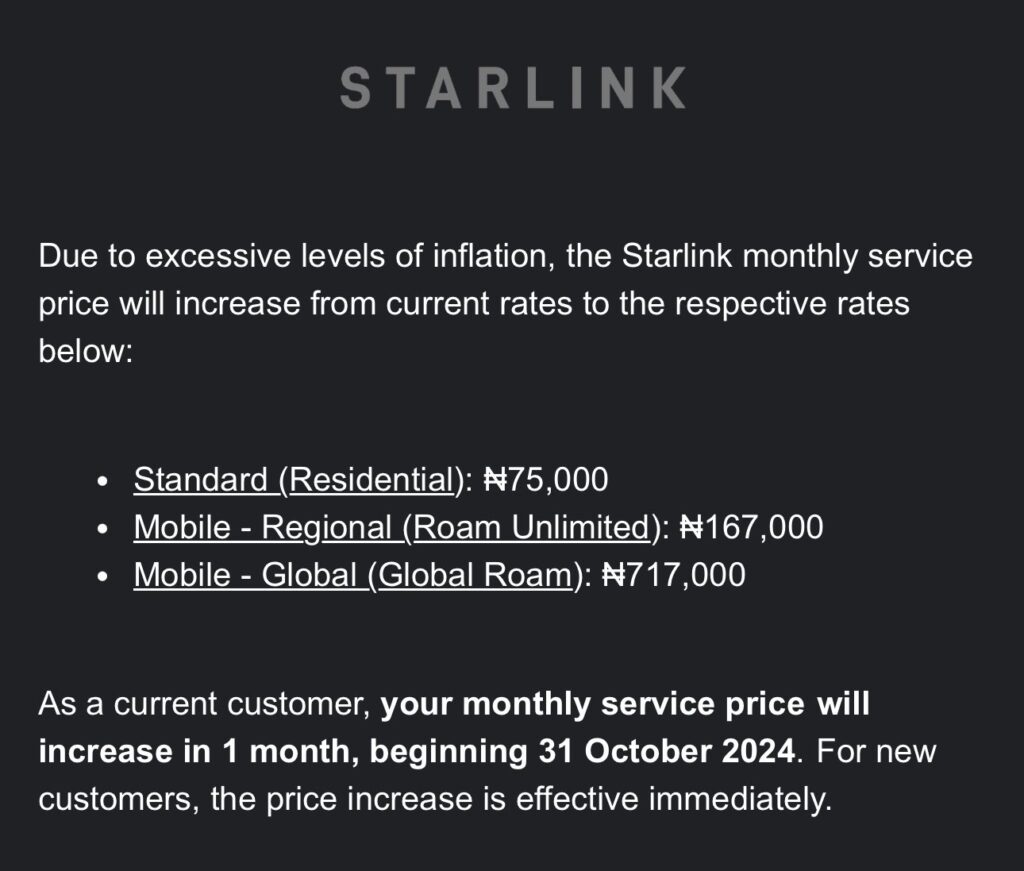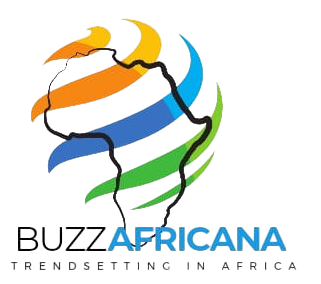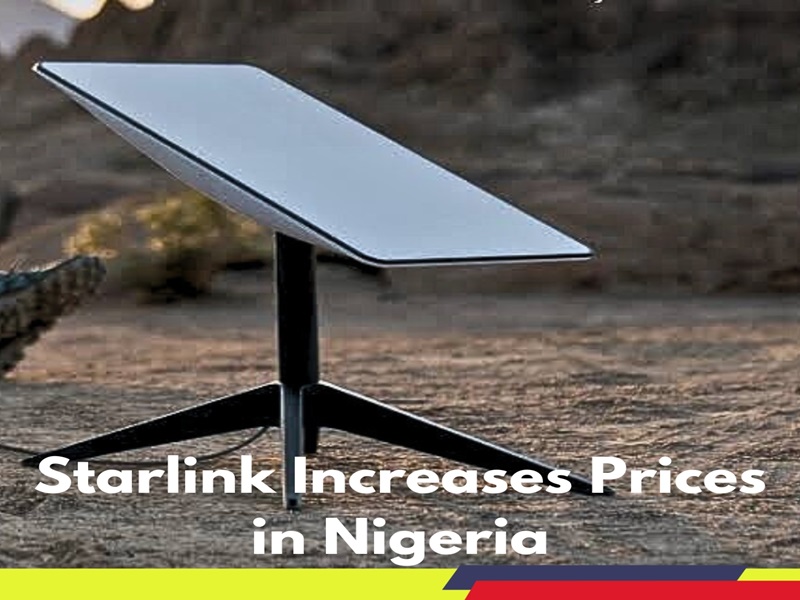Starlink, Elon Musk’s satellite internet service, has announced a significant price hike for its services in Nigeria, attributing the increase to inflation. The company, which initially entered the Nigerian market with competitive pricing for its high-speed internet, has now adjusted its rates, raising concerns among users.
New Pricing Structure
Previously, Nigerians were paying about ₦268,584 for Starlink hardware and ₦19,260 per month for the standard subscription. However, the latest announcement has introduced new prices across its various plans:
Standard (Residential): ₦75,000 per month
Mobile – Regional (Roam Unlimited): ₦167,000 per month
Mobile – Global (Global Roam): ₦717,000 per month
This substantial increase comes as a response to inflationary pressures affecting both the global and Nigerian economies, making it more expensive for Starlink to operate and provide its services at previous rates.
How Does This Affect Users?
The price adjustment is likely to hit both existing and potential users hard. For residential users, the jump to ₦75,000 per month might push Starlink’s services beyond the reach of many households, especially when compared to local internet service providers. For businesses or individuals requiring mobile or global roaming options, the price increase is even steeper, with the Global Roam plan now costing ₦717,000 monthly.
For those in rural or underserved areas, where Starlink was a much-needed alternative to unreliable internet services, this change may lead to difficult decisions about whether to continue with the service.
Why the Price Hike?
Starlink cited inflation as the main reason behind the price adjustment. Nigeria’s inflation rate has been on the rise, leading to higher costs for companies to import goods and manage operations within the country. The company is also likely adjusting to fluctuations in the naira, which has weakened significantly against major currencies, further driving up costs for the hardware and services Starlink offers.
Looking Ahead
Despite the price increase, Starlink continues to be a revolutionary option for many Nigerians, particularly in areas where traditional ISPs fail to deliver. However, the new costs may slow down its adoption rate as users weigh the value of faster, more reliable internet against the steep monthly fees.
As inflation and economic pressures continue to affect Nigeria, it remains to be seen whether Starlink will introduce alternative pricing plans or discounts to make their services more accessible in the future.
For now, Nigerians seeking fast, reliable internet through Starlink will have to navigate this significant price hike and determine if the benefits outweigh the rising costs.





